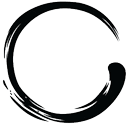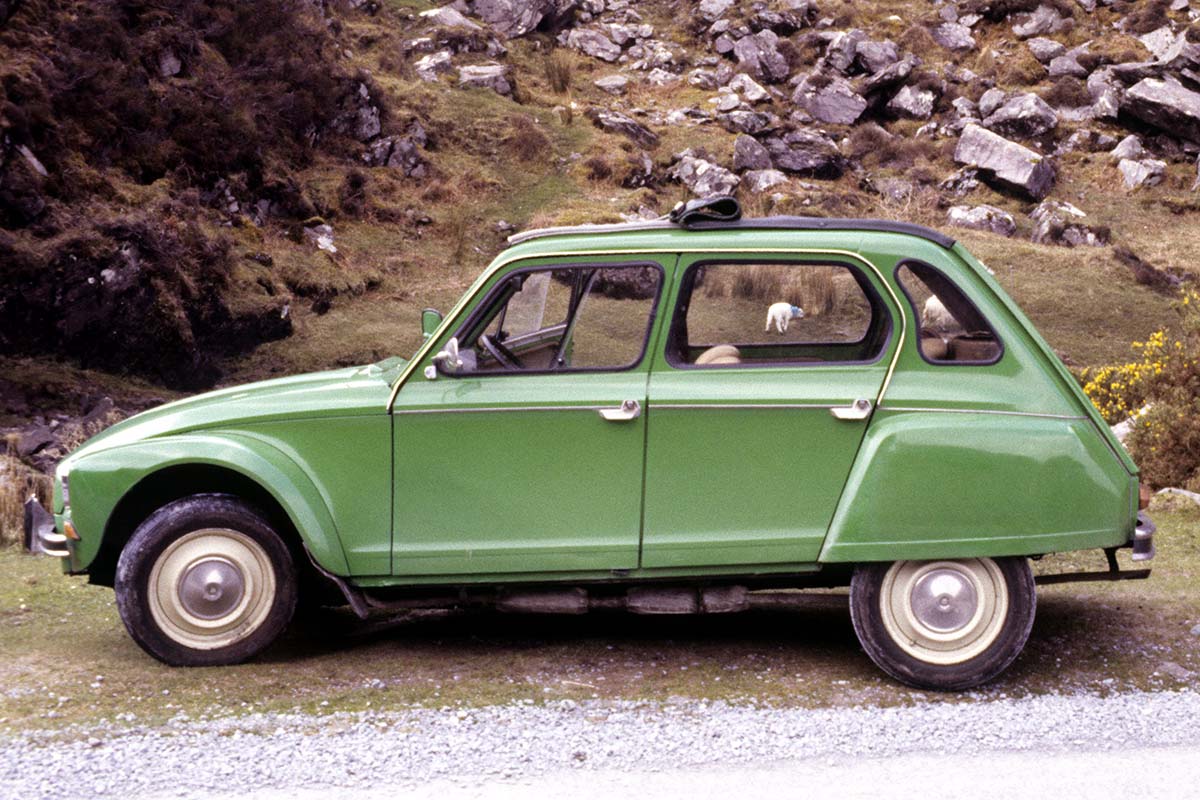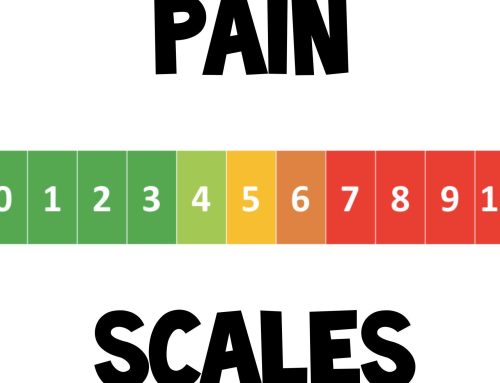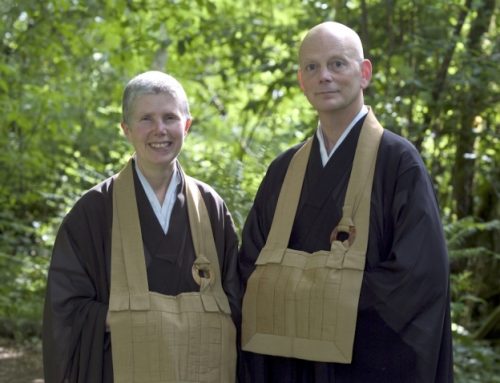The Truth of Suffering and The Cause of Suffering
Change
The IRS allows 53.5¢/mile tax deduction for business use of your car. That far more than the cost of gas. Why? Because with each mile you drive, your car is wearing out. It’s getting old. It’s getting closer to dying, just like us. We’re used to cars getting old. Not so much for ourselves. But getting old and breaking down is inevitable… for everything. Ourselves included.
Attachment
 Ah, the Citroën 2CV, my dream car. I have a model of it in my bookcase. I have a picture of one on my wall. Every now and then, I’ll browse CarGurus.com to see if there’s one for sale. I owned one many years ago. I was backpacking around Europe after college, and I bought a “deux chevaux” in London and drove it around Europe for six months. I’ve longed to buy another ever since. You’d think after studying Zen Buddhism, this longing would go away. But it doesn’t. I still want that car. But when the longing arises, I step back and think to myself, “Ah… attachment… how nice.” See the Citroen I used to own.
Ah, the Citroën 2CV, my dream car. I have a model of it in my bookcase. I have a picture of one on my wall. Every now and then, I’ll browse CarGurus.com to see if there’s one for sale. I owned one many years ago. I was backpacking around Europe after college, and I bought a “deux chevaux” in London and drove it around Europe for six months. I’ve longed to buy another ever since. You’d think after studying Zen Buddhism, this longing would go away. But it doesn’t. I still want that car. But when the longing arises, I step back and think to myself, “Ah… attachment… how nice.” See the Citroen I used to own.
Anger, Compassion, and Equanimity
Here’s an often cited driving scenario: Driving along the highway, you’re cut off aggressively by another car. Person A reacts with range and indignation, turning red, frothing at the mouth, and cursing the other driver. The image of highways in Los Angeles come to mind, right? Person B slows down and continues to listen to their audiobook by Thich Nhat Hanh, reacting ever so slightly to the aggressive driver with a fleeting thought, “Poor guy… so aggressive… suffering…” Things happen. How you react to them is your choice. Cause and effect is an important part of Buddhist teachings. But attributing someone else’s action as the cause of your reaction does not fit within the Buddhist idea of cause and effect. Look within yourself for the causes of your reactions. That’s where you’ll find them.
Karma and Letting go of Right and Wrong
As we drive along the road, there are multiple lanes in which we can travel. There are exits and intersections. Does it sound right to say that any option is, “right” or “wrong?” They just are. Some will take us in the direction we want to go; some will take us away from that direction. But they’re not inherently right or wrong. It’s the same with life. We must make decisions daily, hourly; minute-by-minute even. They are not inherently right or wrong. Some will take us in the direction we want to go; some will take us away from the direction we want to go. Either way, we must live with the consequences of our choices. Just as when we take a turn on the road and realize that it was a mistake, there’s no undo button. We must chart a new course to get back on our path. Think on that the next time you hear your GPS say, “Recalculating route…”
Interbeing
Part I, People’s Input
Just think of everyone involved with creating and maintaining the car you’re sitting in right now. There are the factory workers, the miners, those involved with providing electricity to the factory, the oil rig workers, the scientists and engineers, and all the people involved in building the equipment used to build your car. You can pursue this expanding tree of those on whom your car depends endlessly. Nothing and no one exists without others. We are all interconnected. At the same time, we are part of things in the future. We are not the crowning achievement of all the efforts of all the people involved with who we are. We are not their final gift to humanity. We are part of the flow that continues on; we are part of what creates that which follows us. We are part of the flow.
Part II, Stuff
Cars… mostly metal and plastic. Perhaps mostly plastic and less metal these days. Just think of all the constituents–the iron and copper mined thousands of miles away, the silica for the glass, the oils for the plastic, the plants and animals that lived millions of years ago that became part of the oil used to make the plastics, the sun and earth that gave the energy and substance for these plants and animals, and so on ad infinitum. We are no different. As Thich Nhat Hanh says, “We can only inter-be. I am made only of non-me elements, such as the Earth, the sun, parents, and ancestors.” And as such, we are all the same.
Beyond Thinking and Emotions
When driving, we tap into a part of ourselves beyond thinking and emotions. This sounds awfully woo-woo or new agey. But it’s not. Another term for this is being in a flow state, also called colloquially as “in the zone.” If you had to think out each and every action you took while driving, you’d barely creep out of the parking lot. I wouldn’t recommend trying this on the highway. And the idea of trusting our emotions to drive, for me, conjures images of road rage, or getting pulled over for driving way too fast or way too slow. We all tap into a different part of ourselves to drive. You do it every time you drive. But in life, we rely on and trust thinking and emotions, often at the exclusion of that deeper part of our self that we rely on in a flow state. Why? Because this deeper part of our self is obscured by the monkey mind, the endless chatter of thoughts that are at the forefront of our attention. Same with our emotions. Thoughts and emotions take over and we are consumed by them–most of the time. But we are not our thoughts and emotions. Letting go of thoughts and emotions–not eradicating them, but just letting go of them, not being so attached to them, not trusting them entirely–brings us just a little closer to a deeper part of our self.
Emptiness
“Form is that which is before we project our concepts onto it… …form is empty. But empty of what? Form is empty of our preconceptions, empty of our judgments.” Cutting Through Spiritual Materialism, p. 188, by Chögyam Trungpa. As we drive, we “see” countless cars driving along with us and coming from the other direction. There are so many that we don’t expend the energy to focus on each one. They just are. We don’t think, “There’s another car, and oh… there’s another and another…” We are aware on a sensory level of each car, but we don’t form any concepts about each one. This is seeing things as they are. This is Prajñāpāramitā, or the perfection of wisdom. Wisdom beyond wisdom. But don’t we all sometimes look at a car and think something like, “That’s a piece of junk, or what a beauty, or boy, that guy must have insecurity issues,” and so on… As soon as we form an opinion about the car, we are no longer seeing it as it is. We are obscuring it with our own filters, judgments, or preconceptions. So we, perhaps without knowing it, experience seeing things as they are, and seeing things obscured when we drive without even knowing it.
The parallels between driving and Buddhism go on and on. Think on this as you’re driving along next time. Your car is a good Dharma teacher.







Leave A Comment